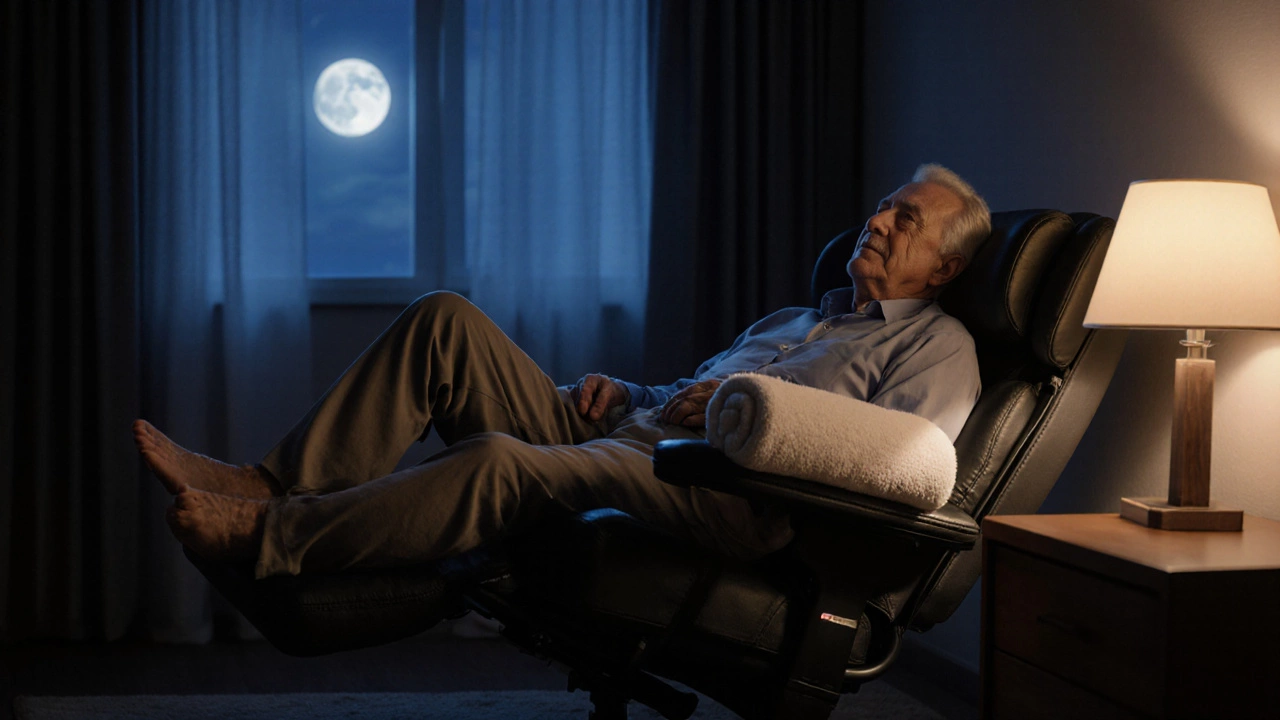
Is It Safe to Sleep in a Recliner Every Night?
Sleeping in a recliner every night isn't ideal for your spine or circulation, but it can be safe with the right setup. Learn when it's okay-and when to switch back to a bed.
When you sleeping in recliner, a seated position designed for relaxation, often used for watching TV or napping. Also known as reclining chair, it may feel comforting—but using it as a bed can trigger serious health issues over time. It’s not just about being uncomfortable. Your body wasn’t built to spend hours in a semi-upright angle with legs elevated and spine unsupported. This position messes with your circulation, spine alignment, and even your breathing.
leg circulation, the flow of blood through your lower limbs, essential for muscle function and tissue health takes a hit when you sleep in a recliner. Blood pools in your legs because gravity works against you in that tilted position. You might wake up with swollen ankles, numb toes, or that heavy, achy feeling you can’t shake. That’s not normal fatigue—it’s your body screaming that blood isn’t moving right. And it’s not just your legs. Poor posture in a recliner strains your lower back, flattens your natural spinal curve, and tightens your hip flexors. Over time, this leads to stiffness, chronic pain, and even difficulty walking normally in the morning.
Some people think they’re being smart by avoiding a hard mattress, but a recliner doesn’t fix the problem—it just shifts it. poor posture sleep, any sleep position that misaligns the spine or restricts movement is dangerous whether it happens on a couch, a chair, or a bed. Recliners often lack the firm support your spine needs, especially if you’re sleeping on one nightly. And if you’re using it because you have back pain or sleep apnea, you’re not solving the root issue—you’re masking it with temporary comfort.
You don’t have to give up your recliner entirely. But if you’re using it to sleep more than occasionally, you need to ask why. Is it because your bed is too hard? Too noisy? Too far from the TV? The real fix isn’t more pillows—it’s understanding what your body truly needs to rest safely. There are better ways to get comfort without risking long-term damage.
The posts below dig into exactly how recliners affect your body—from why your legs ache at night to what kind of chair a chiropractor actually recommends. You’ll find real advice on how to sit without hurting yourself, what signs to watch for, and how to make smarter choices whether you’re sleeping in a recliner or just relaxing after a long day. No fluff. No guesswork. Just what works.

Sleeping in a recliner every night isn't ideal for your spine or circulation, but it can be safe with the right setup. Learn when it's okay-and when to switch back to a bed.